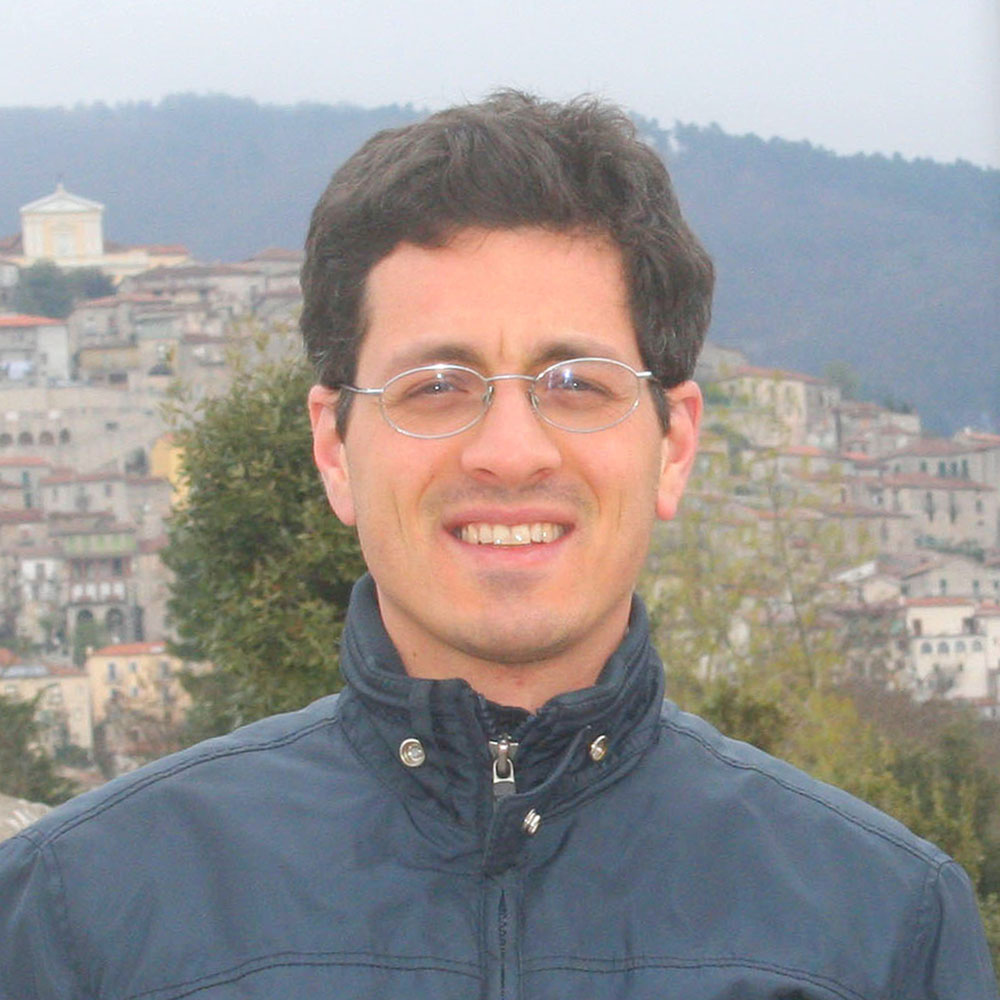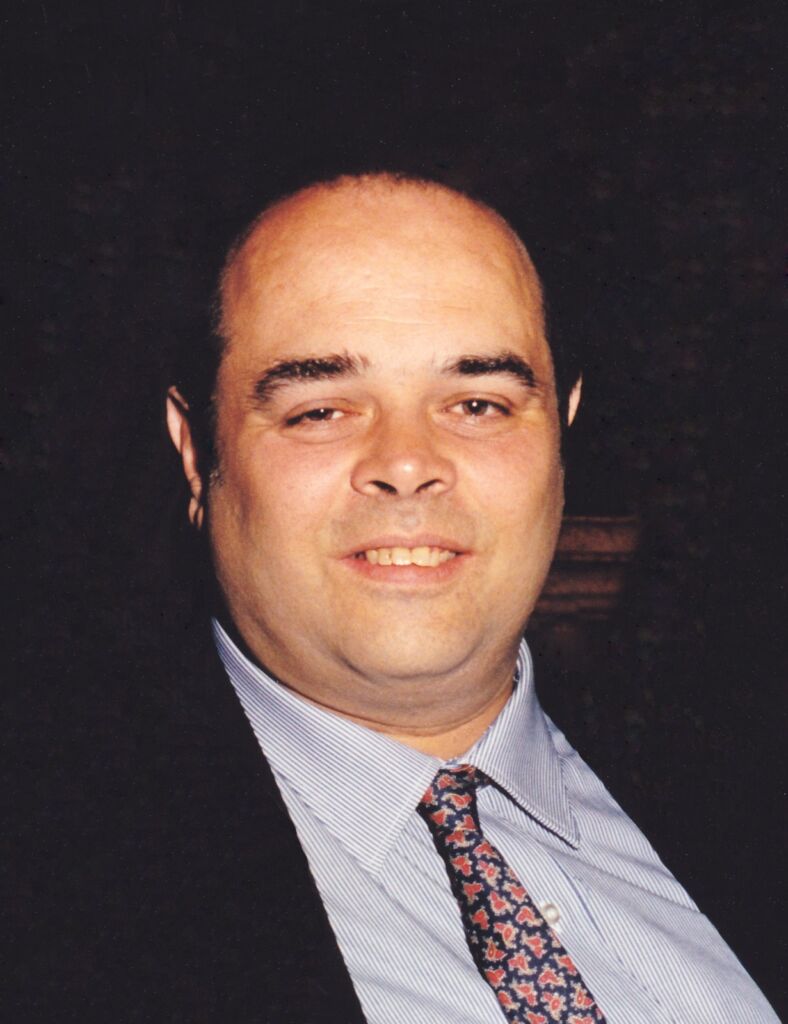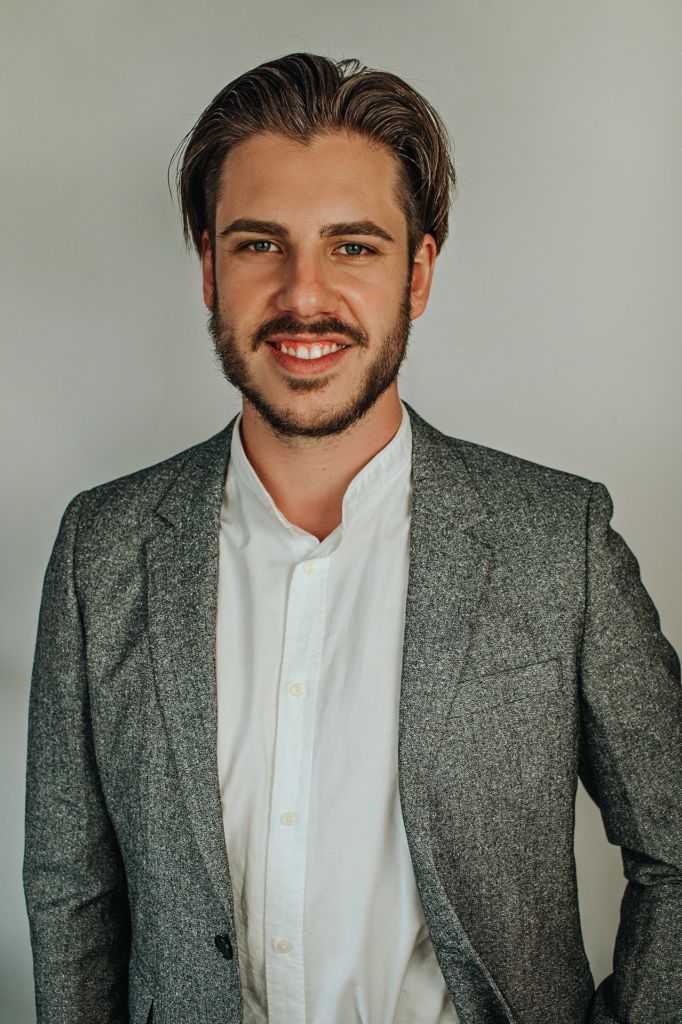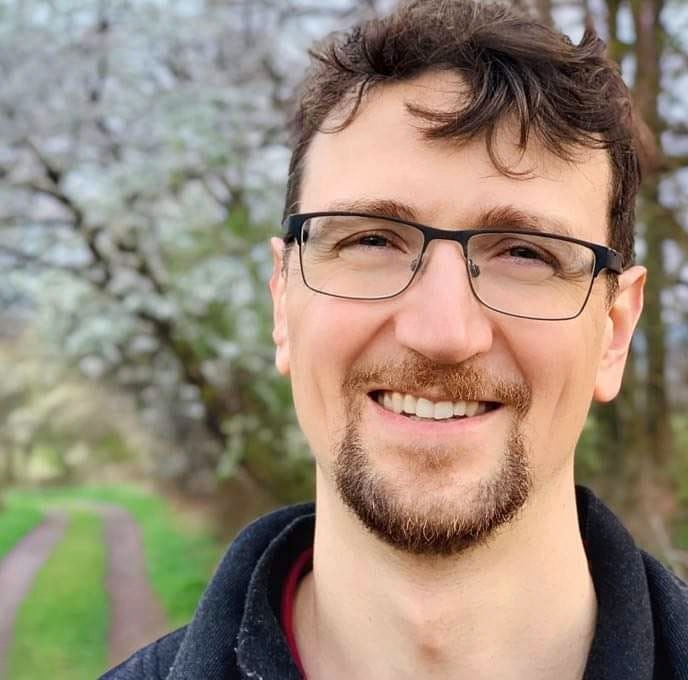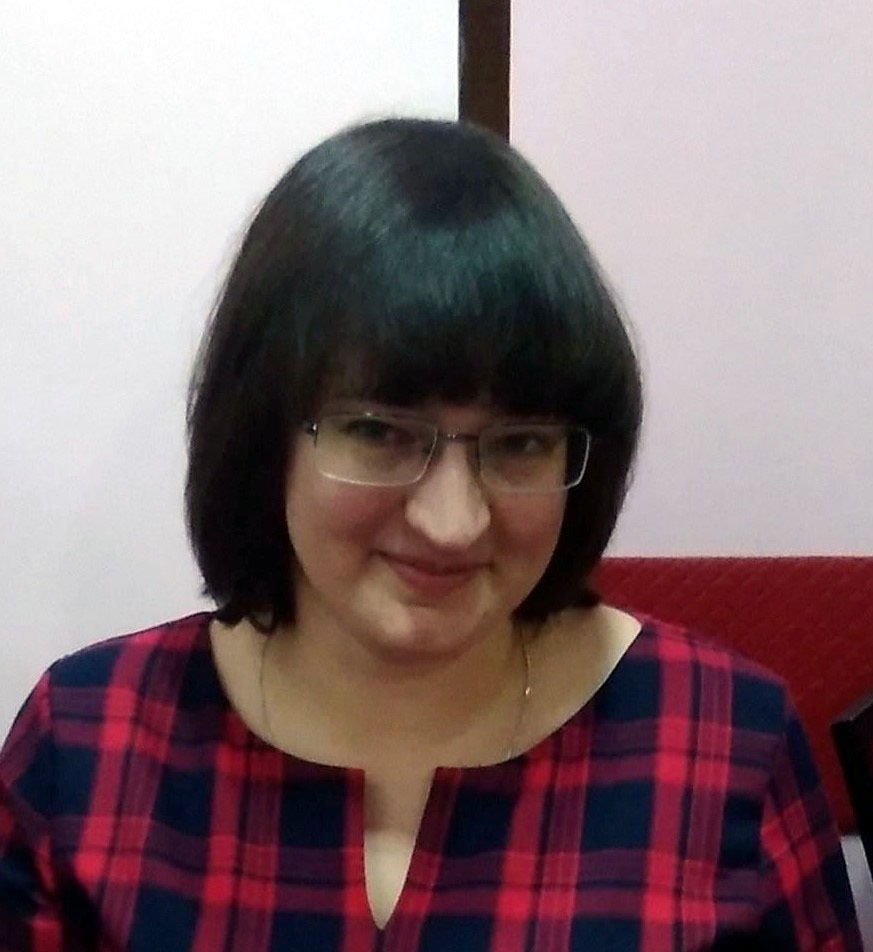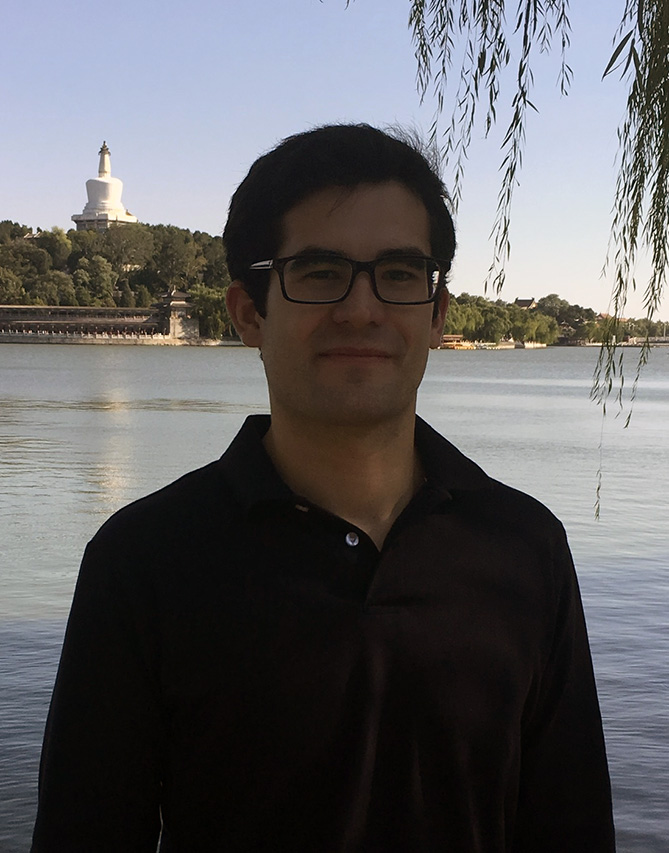Roberto Carfagni
Latin teacher and founder of the Schola Latina
Roberto Carfagni was born in Avellino (Italy) in 1983.
He read humanities first at Salerno University and then at the “Istituto Orientale” of Naples, where he received a master’s degree in classical and modern literature with a dissertation in Renaissance philosophy about the paedagogical ideals and the teaching practice of 15th century Italian humanists, earning a mark of 110/110 cum laude.
His studies not only concern the ancient (Greek and Roman) world, but also encompass the modern age in all its aspects, as well as Renaissance Latin literature. Though he has a wide range of interests – including history, philosophy, literature and languages –, his education is based on Latin and its teaching methods.
He taught, in Latin, (ancient) Latin literature at the academy Vivarium Novum, in Rome. He authored, or coauthored, a few books, including the Epitome historiae sacrae (2009: published in Italy by the Edizioni Accademia Vivarium Novum, in the United States by Hackett Publishing Company and in Spain by culturaclasica.com) and the Nova exercitia Latina I (2015). He helped to plan and organise three international Latin conferences: “Humanitas” (Naples, July 15 – 22, 2007), “Litterarum vis” (Szeged – Budapest, July 23 – August 1, 2008) and “Latinitas et doctrinarum orbis” (2021).
He took part, with lessons and lectures, in many conferences and seminars, in schools and universities, in Europe, in America and in China.
He has also taught Latin and Latin literature through the Web since 2012.
Over the years he has had students of all ages, from 9 to 90 years, and they all retain an excellent opinion of him. That is why Roberto and some friends of his have decided to share their interests and skills and found the Schola Latina.
Alessandro Barbone
Greek teacher
Alessandro Barbone was born in Avellino (Italy) in 1982.
After graduating in philosophy from the Frederick II University of Naples, he specialized in ancient Church history at the University “L’Orientale” of Naples. His main interests include the classical world and its relationship with early Christianity. His love of classics prompted him to deepen his knowledge of Greek and Latin and, more recently, of biblical Hebrew.
Among his publications are: some exercise books designed to be used along with the Greek course Athènaze: Quaderno di esercizi per Athènaze I (2 volumes), Ephòdion I, Ephòdion II; and a school edition of the Table of Cebes, a Hellenistic philosophical text: La tavola di Cebète (with T. F. Bórri).
Alessandro has also written a study on the Table of Cebes (La tavola di Cebete, with an Italian translation) and an essay on the Pythagorean conception of music (Musica e filosofia nel pitagorismo). He has translated into Italian the De nuptiis Bentivolorum, by Filippo Beroaldo.
Finally, he is the author of a novel, Partita per violino solo.
Tommaso Francesco Bórri
Greek, Latin and Italian teacher
Tommaso Francesco Bórri was born in Parma (Italy) in 1964, and lives in Montella (Italy).
He is one of the authors of the new multimedia edition of the DOP (Dizionario d’ortografia e di pronunzia), the standard dictionary of Italian pronunciation and orthography: a website and a paper book.
With Luigi Miraglia, he is the author of the much augmented Italian edition of the Greek coursebook Athènaze (original English edition by M. Balme and G. Lawall) and of some supplementary materials designed to be used with H. H. Ørberg’s Lingua Latina per se illustrata.
He has dealt with the pronunciation of Latin, comparing the scholastic and ecclesiastical pronunciation traditional in Italy with the reconstructed classical pronunciation (pronuntiatus restitutus).
With Roberto Carfagni, he is now writing a Latin syntax.
Eduardo Arturo Flores Miranda
Greek and Latin teacher
Eduardo Arturo Flores Miranda was born in Cuernavaca, Mexico, in 1986.
He started studying modern languages when he was a little boy, which prompted his desire to learn ancient languages, too. For that reason, he read classics at the UNAM (National Autonomous University of Mexico) and continued his training in Latin and Greek at the academy Vivarium Novum.
Since 2008 he has been teaching Latin, first in a conversational Latin workshop at the UNAM, and then in the minor seminary of his native city, where he also teaches rudiments of Greek and some other subjects related to humanities, such as ancient history, philosophy, Spanish composition and literature.
He also works as a proofreader at Conaculta, which is one of the biggest publishing houses in Mexico, and specializes in books related to Latin American history and classical tradition.
For the previously mentioned publishing house, he has participated in the elaboration of the publishing guidelines with three chapters: the first one is about the transcription of Greek and Latin proper names into Spanish, the second one deals with the rules for quoting ancient writers, and the third one is concerned with how to quote Christian writers and the Holy Scripture.
Omar López Pacheco
Greek and Latin teacher
Omar López Pacheco was born in Mexico City in 1984.
He studied Latin and Greek at the UNAM (Universidad nacional autónoma de México) and the Vivarium Novum Academy, in Rome, where he taught ancient history in Latin. He also taught in the Academy’s intensive Latin summer courses.
He has translated some of the pedagogical works of the Italian humanist Pier Paolo Vergerio into Spanish and now serves as assistant professor of Greek at the UNAM.
Renan Marques Liparotti
Greek and Latin teacher
Renan Marques Liparotti was born in Curitiba (Paraná, Brazil) in 1990. He read Portuguese at the UFRN (Federal University of Rio Grande do Norte), and then completed a master’s degree at the University of Coimbra, where he defended a dissertation about Plutarch’s work De Alexandri Magni fortuna aut virtute (Περὶ τῆς Ἀλεξάνδρου τύχης ἢ ἀρετῆς), achieving the maximum mark. This dissertation has been expanded into the first Portuguese translation, with a commentary, of Plutarch’s work, which is also readable online.
He is now attending the RAMUS PhD programme at the University of Salerno, in cotutorship with the University of Coimbra: his subject of study is Plutarch and the theatre: a political and philosophical approach.
His interests encompass the ancient (Greek and Roman) world, Greek theatre and literature, Latin literature, the translation and reception of classical authors, and also Portuguese and Brazilian literature.
He is a collaborator researcher of the CECH (“Centre for Classical and Humanistic Studies” of the University of Coimbra), where he is a member of the team of translators of the Cursus Conimbricensis. He is also a collaborator researcher of the CLP (“Centre for Portuguese Literature”), and an adjunct coordinator in the editorial staff of the Dictionary of Portuguese fiction characters.
He served as a temporary teacher of Latin at the UFRN (2011), and as a teacher of Latin and Latin literature in the specialist degree course on Latin (2021). Since 2019, he has been a member of the “Schola latina”, teaching Latin and Greek online.
Jiří Augustin Čepelák
Latin teacher
Jiří Augustin Čepelák (Georgius Laminarius) was born in Prague in 1983.
He studied history and Latin at the Charles University in Prague and at the academy Vivarium novum in Rome, where he taught Latin language, prose composition, conversation, and Latin medieval literature. Since 2017 he has been teaching history and Latin at the Pražské humanitní gymnázium, a grammar school in Prague, and since 2018 also European early modern history at the Department of Ecclesiastical History and Literary History of the Catholic Theological Faculty of the Charles University in Prague. In his PhD thesis, on which he is working now, he deals with saint Wenceslas and his cult from the point of view of the Jesuitic baroque historiography.
His fields of interest are mainly the didactics of Latin, Latin prose composition, and medieval and early modern Latin literature. He translated into Czech and published Hans H. Ørberg’s students’ manual to Familia Romana, and popularised the direct method of teaching Latin, especially in the Czech Republic, where he published several articles on this subject. Among his publications there are also a school edition of Lucretius’s De rerum natura and the translation of Bohuslav Balbín’s (+ 1680) first volume of the Miscellanea historica regni Bohemiae, about the nature of Bohemia. The book was awarded by Academia, the publishing house of the Czech Academy of Sciences, as the best translation and its best book published in 2017.
Natalija Čepeláková
Latin teacher
Natalija Čepeláková was born in Noginsk (Russia) in 1985, and is now living in Prague.
She received a degree in Classical Philology from the Moscow State University. She taught Greek in Saint Tichon’s Orthodox University of Humanities in Moscow. Since 2012 she has been a lecturer in the faculty of humanities at the National Research University Higher School of Economics, where she taught history of philology, Latin and ancient literature, and had a research seminar about the reception of classics and supervised students’ research in this field.
She is the author of articles on ancient geography and on the reception of antiquity. She gave lectures and master classes on the reception of antiquity in children’s literature (e. g. on ancient motifs in the J. K. Rowling’s Harry Potter series and on Apuleius’s influence on C. S. Lewis). From 2017 to 2019, she was the deputy director of the HSE Summer School of History and Philology. Since 2009 she has been the director of the Summer School for the Study of Antiquity held by the Russian Association of Classics, where, in particular, she taught Latin using the communicative method.
In her PhD thesis, on which she is working now, she examines Greek identity and Greek views of barbarians at the very beginning of the Empire, analysing Strabo’s Geography.
Luciano Romano
Latin teacher
Luciano Romano was born in Syracuse, Italy, in 1994.
He’s been interested in classical studies since secondary school. He read classics at the Salesian Pontifical University in Rome and at the academy Vivarium novum in Frascati, where he taught Latin style and Renaissance literature, particularly during the intensive summer courses.
He graduated with a thesis on the so-called “golden verses” of the Pythagorean tradition.
From 2018, he taught Latin and Greek language and literature for four years at the University of foreign languages of Beijing, where he helped to found the first faculty of classics in China.
His study interests include the didactics of Latin, Renaissance Latin literature and Greek philosophy.
He’s been co-operating with the Schola latina since 2022.






